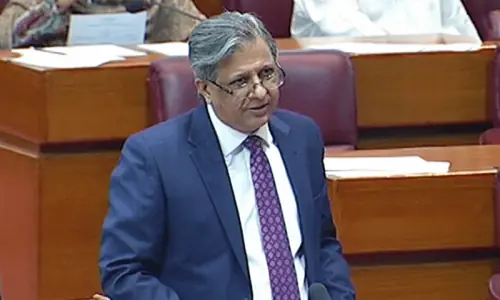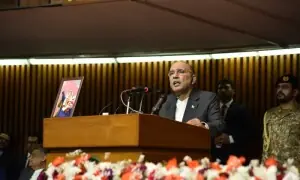The US has reached out to Pakistan and half a dozen other countries it believes can influence the situation in Afghanistan, where the Taliban appear to be consolidating their hold after capturing Kabul.
The foreign ministers of Pakistan, China, Russia, India and Turkey and the foreign secretary of Britain were among the top diplomats the US Secretary of State Antony Blinken spoke with on Monday, his office announced in a statement. He also spoke with the North Atlantic Treaty Organisation's secretary general and European Union’s (EU) high representative, the statement added.
Pakistan shares a 2,252-kilometre-long border with Afghanistan, while China shares a shorter but sensitive border along the Wakhan corridor — a narrow strip of territory in Afghanistan.
Russia does not share any border with Afghanistan but has built a close relationship with Afghan insurgents since the withdrawal of its troops from the war-torn country in 1989.
Turkey, too, has traditionally maintained good relations with Afghanistan and Britain has leverage there as well.
The EU has partnered with the US in providing economic assistance to Afghanistan and has been supporting America’s military presence there.
In reaching out to China, the US overcame its concerns that Beijing may exploit the latter’s withdrawal from Afghanistan to further expand its influence in the region.
US policymakers believe that problems in the Muslim majority Xinjiang province of China provide an opportunity for cooperation between Beijing and Washington. They say that like them, China also does not want religious insurgency in the region as it will have an adverse impact on Xinjiang.
Washington believes that India can also be useful in Afghanistan where it retains pockets of influence in various places.
But policymakers and scholars in Washington have repeatedly said that none of these countries match the depth of Pakistan’s ties with Afghanistan. Both Trump and Biden administrations have publicly acknowledged Pakistan’s support in concluding the February 2020 peace deal with the Taliban.
Moreover, Washington is aware of the struggle between India and Pakistan for influence in Afghanistan and wants both countries to not allow their rivalry to further strain an already tense situation in a sensitive region.
In this connection, Blinken called his Indian and Pakistani counterparts on Monday.
Qureshi, Blinken discuss Afghanistan
After Secretary Blinken’s call, the State Department issued two statements, saying: “Secretary Blinken spoke with Pakistani Foreign Minister Shah Mahmood Qureshi. Secretary Blinken and Foreign Minister Qureshi discussed Afghanistan and the developing situation there.”
According to Radio Pakistan, Qureshi assured Blinken during the telephonic conversation that Pakistan would remain closely engaged with the US and other international partners in "promoting efforts for supporting a peaceful and stable Afghanistan".
The state broadcaster reported that the foreign minister stressed the importance of an "inclusive political settlement as the best way forward" in Afghanistan and the need for the US to continue economic engagement with Afghanistan.
Moreover, the Radio Pakistan report said, Qureshi informed Blinken about Pakistan's efforts for facilitating the evacuation of staff of diplomatic missions and international organisations and others from Afghanistan.
With regards to bilateral relations between the US and Pakistan, he underlined "Pakistan's commitment to forging a broad-based, long-term and sustainable relationship" with America that is "anchored in peace, deeper economic cooperation and regional connectivity", the report added.
India’s 'obstructionist' action
Secretary Blinken also “spoke with Indian External Affairs Minister Dr S. Jaishankar about Afghanistan and the developing situation there,” according to the statement issued by the US State Department.
Yet, India shows no sign of easing its tensions with Pakistan and on Monday, it once again stopped Pakistan from participating in a UN Security Council (UNSC) debate on the Afghan situation.
India, the council’s current president, however, allowed the ambassador of the Ashraf Ghani government to address the emergency session.
Pakistan and Afghanistan had both submitted their requests under UNSC rule 37, which allows a non-member to address the council. Both are not members of the current council, which has five permanent and ten non-permanent members. Earlier, India had blocked Iran from addressing a session as well.
In doing so, India also ignored UN Secretary-General António Guterres' appeal for international unity on Afghanistan.
“Now is the time to stand as one,” said the UN chief said, as he urged nations to show willingness to receive Afghan refugees and halt deportations.
In his address to the emergency session, the UN chief urged nations to avoid this divisive approach, reminding them that in today’s situation in Afghanistan needed the support of the entire international community.
“The following days will be pivotal,” he said. “The world is watching. We cannot and must not abandon the people of Afghanistan.”
Later, Pakistan Ambassador at the UN Munir Akram criticised India while addressing a news briefing in New York.
The Indian denial “is most regrettable. We believe that Pakistan has an important contribution to make at this important and vital juncture in the destiny of Afghanistan,” he said
Akram said that “India’s partisan and obstructionist actions are an illustration of its hatred for Pakistan.” He accused India of planning to “continue the conflict in Afghanistan and to continue the sponsorship of terrorism against Pakistan from Afghanistan.”
































